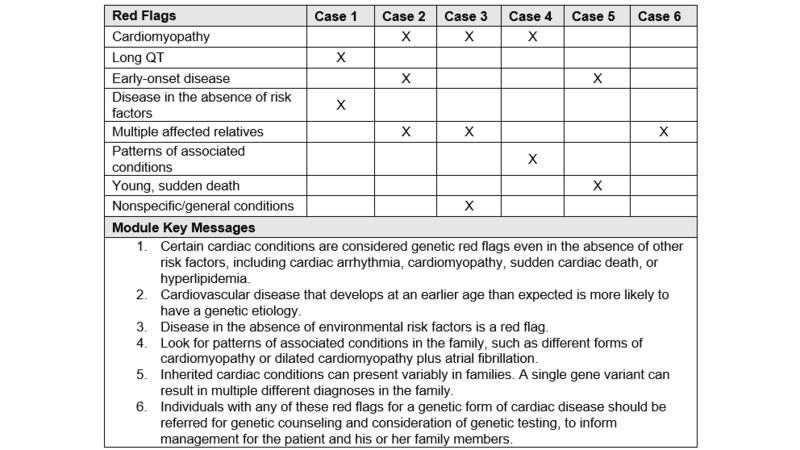7 tips for developing evidence-based online education for clinicians
Blog Post

We recently published a paper in Journal of Genetic Counselingoutlining our successful team-based approach to developing education for cardiology clinicians. Our collaboration with clinical and research experts at Northwestern University and the Augustana University Program was instrumental to the launch of JAX’s first cardiogenomic module.
Journal of Genetic Counseling
Here are seven tips you can use to develop effective online education:
1. Know your audience’s needs.
Researchers from Northwestern University, Augustana University, and Sanford Health identified gaps in practices and knowledge among cardiology providers.
2. Partner with education experts.
JAX Clinical Education has been developing education for over 10 years. We provide subject matter and educational expertise using experienced genetic counselors (GCs) paired with an instructional designer.
3. Design using adult learning theory.
We designed our module to focus on practical skills rather than knowledge.
Cardiology providers identified the following needs: 1) identifying genetic red flags and 2) identifying patterns of disease. Our design had six key educational messages across six case studies. Each case addressed common genetic red flags in cardiomyopathy, arrhythmia, sudden death, and hyperlipidemia.
 Table adapted from the article by Edelman et al. (2023)
Table adapted from the article by Edelman et al. (2023)
4. Create a reference document outlining design decisions.
4. Create a reference document outlining design decisions.
4. Create a reference document outlining design decisions.
We used the reference document to keep content development focused. Our case studies were developed to practice each skill (learning objective) and address the key educational messages.
5. Develop content collaboratively to produce a useful and relevant educational module.
5. Develop content collaboratively to produce a useful and relevant educational module.
5. Develop content collaboratively to produce a useful and relevant educational module.
Cardiovascular genetic counselors (GCs) from Northwestern and Augustana served as clinician experts, and JAX GCs served as education experts during the drafting stages.
6. Get input from external experts throughout content development.
6. Get input from external experts throughout content development.
6. Get input from external experts throughout content development.
Physicians with genetics expertise provided feedback and noted content to revise. We used this to improve content while following our education design.
7. Invite review of content by members of the target audience.
7. Invite review of content by members of the target audience.
7. Invite review of content by members of the target audience.
Cardiology physicians, nurse practitioners (NPs), physician assistants (PAs), and nurses without specialty genetics expertise reviewed a beta version of the online module.The result? A module aligned with clinician needs and preferences. The overall feedback from target audience reviewers was positive with minimal suggestions for revisions.We believe the positive response was due to:The robust needs assessment that informed target audience needs
Takeaways
Collaborative efforts, evidence-based design, and stakeholder engagement are key to shaping effective genetics education.Partnerships and shared resources can strengthen educational initiatives.
While the level of support in this project is not available for all clinical education projects, we encourage others to look for resources and partnerships that may be available in their institution or network. For more information,read the full paper here.
This project was funded, in part, by the American Heart Association Cardiac Death Strategically Focused Research Network.
